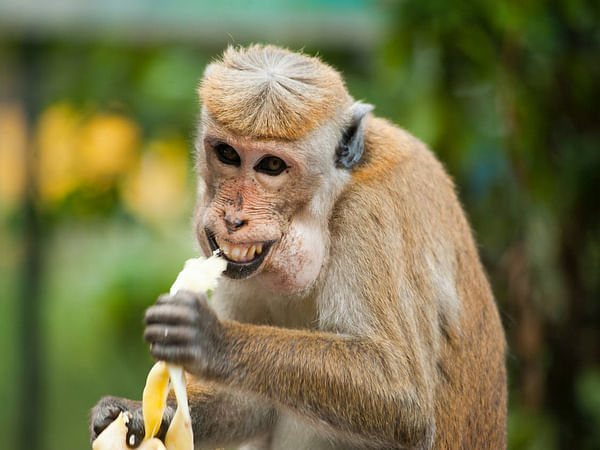Washington [US], August 3 (ANI): Researchers used muriquis poop to gain insight into how the primates choose their mates in order to better understand what goes on in their mating lives.
The scientists combined genetic analysis with long-term behavioural observations in a paper published on August 2 in the journal Proceedings of the Royal Society B to better understand the reproductive patterns of the endangered muriqui.
Muriquis, unlike most primates, live in peaceful, egalitarian societies centred on related males and their mothers. Karen Strier, a co-author of the paper and a professor of anthropology at UW-Madison, has spent 40 years studying the behaviour and ecology of these monkeys in a small, preserved section of the Brazilian forest. She and her team can tell who each monkey is and how they are related to one another. It also means she can tell whose poop is whose.
She and her colleagues collected samples and gave them to Anthony Di Fiore, an anthropology professor and director of the Primate Molecular Ecology and Evolution Lab at UT Austin, and Paulo Chaves, Di Fiore’s graduate student at the time. They used faecal samples (among the best non-invasive samples they could collect) as a source of DNA to study the mating behaviour of muriquis using genetic data.
The research team was able to ask unique genetic questions because Strier’s field crew knew which samples belonged to whom.
“I knew from behavioural observations that there was a lack of competition in mating and that mothers didn’t mate with their sons or close male relatives. But the only way to know who the fathers are is with genetics,” Strier said.
From their lab analysis, Chaves and Di Fiore confirmed that there were no mother-son pairings, which suggests the muriquis may recognize their kin, allowing them to avoid incestuous mating.
They also found that females tend to reproduce with males who have a more diverse set of genes coding for molecules that play an important role in the body’s immune response to pathogens and other environmental stressors.
This interesting class of genes is called the major histocompatibility complex (MHC), and Chaves and Di Fiore were able to characterize genetic variation between individual monkeys.
“Our finding that male sires have higher MHC diversity than expected by chance is one of the things we would expect if that diversity contributes to male fitness or is one of the dimensions of female mate choice,” Di Fiore said.
Male fitness, in this case, refers to the ability of a male mate to provide offspring with genes that will give them the best chance at survival. Having diversity in their MHC genes may also give offspring more protection against pathogens and environmental stressors, which is evolutionarily advantageous, Strier explains.
Theoretically, then, a female should choose males that not only have high MHC diversity, but that also have MHC genes different from hers.
However, the genetic analysis showed that while females seem to choose mates with higher MHC diversity overall, they weren’t necessarily choosing males with genetic variants different from their own.
“Our study is one of just a handful that has looked at the relationship between MHC variation and reproductive patterns in wild primates and is the only one to do so for an egalitarian species like muriquis,” Di Fiore said. (ANI)
This report is auto-generated from ANI news service. ThePrint holds no responsibility for its content.



